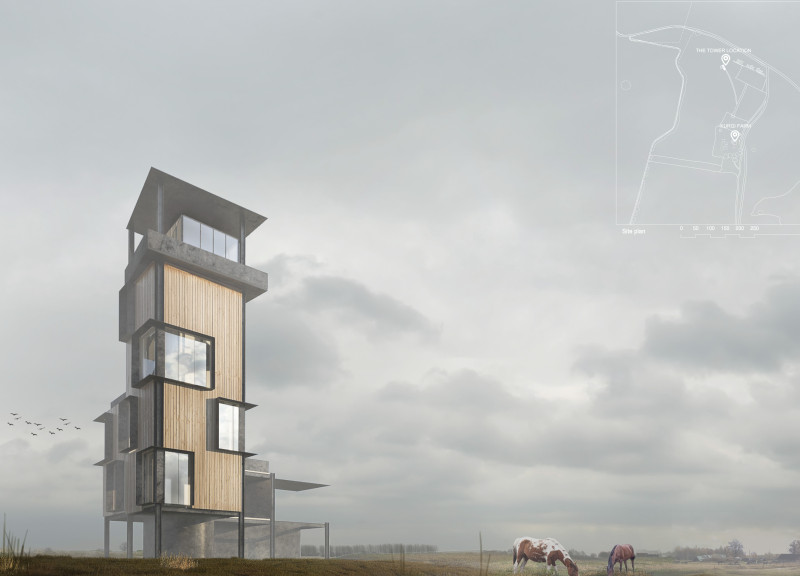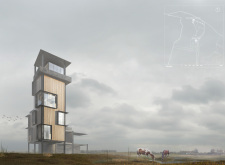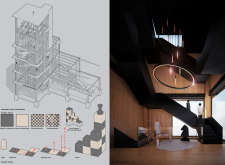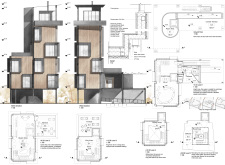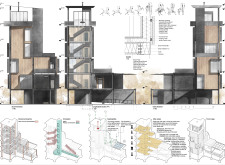5 key facts about this project
The project located at Kurgi Farm features a well-organized spatial layout inspired by the arrangement of a chessboard. Positioned in a tranquil environment, the design offers a blend of areas for community gathering and personal retreat. A key aim is to encourage flow between different zones, allowing movement throughout the spaces while keeping a strong connection to the surrounding landscape.
Spatial Organization
Inside the building, several distinct areas are defined, each serving specific purposes. The Rook Area rises to the top, functioning as a gathering space with a central fireplace. This area promotes social interactions and provides expansive views. Below, the King Area serves as a lounge space equipped with comfortable seating, encouraging relaxation and informal meetings.
Functionality and Adaptability
Adjacent to the King Area is the Queen Area, focused on reading and reflection. It includes shelves filled with books and a coffee machine to enhance the leisure experience. The Knight Area is notably versatile, designed for workshops and exhibitions. With modular furniture, it can be rearranged for different activities. This adaptability is crucial for meeting various programming needs throughout the building's use.
Sustainability Measures
Sustainability is clearly a priority in the design. Solar panels are implemented to provide energy for the lighting system, while rainwater is collected and reused. These features highlight a commitment to environmental responsibility and address the growing demand for sustainable architecture.
Materiality
The design employs a specific selection of materials, including square pipes, wainscot paneling, oriented strand board, and mineral wool with a thickness of 10 cm. These materials contribute to the structure’s strength and enhance its visual appeal, offering a variety of textures while maintaining a cohesive aesthetic.
The arrangement of these functional spaces creates an inviting atmosphere, encouraging interaction and engagement among users, while thoughtfully considering individual needs within its design.


